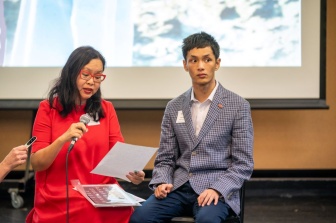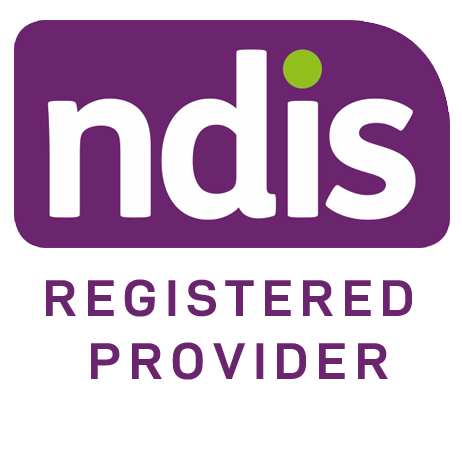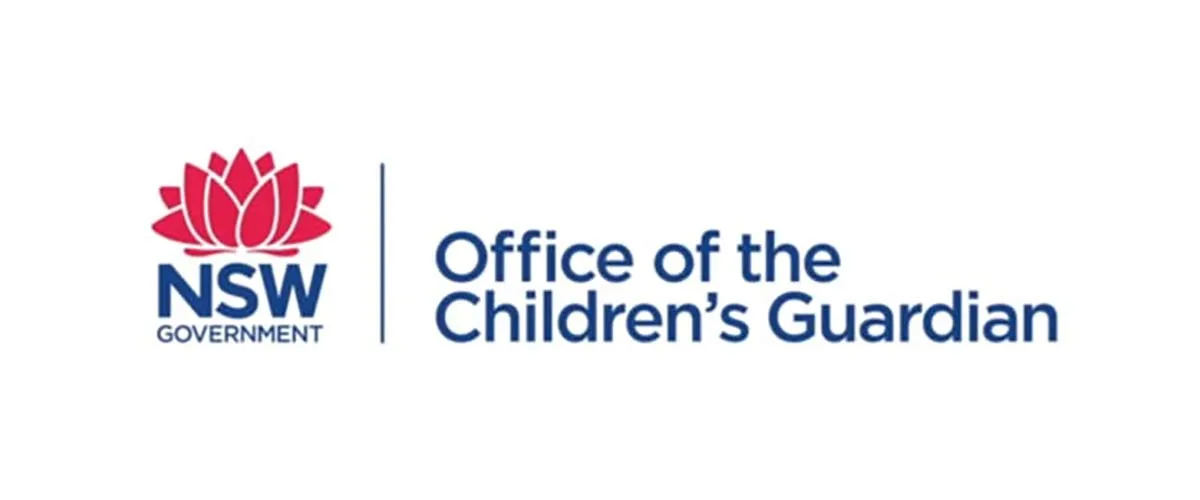Jayelan is achieving his career goals through youth employment support, funded through his NDIS plan.
Jayelan’s limited verbal ability makes his achievement even more impressive because as an advocate, he delivers presentations to audiences.
When Jayelan was introduced to the letterboard, it was a turning point.
“Things were so much better when I started communicating on the letter board,’ Jayelan says. ‘It felt great to finally access the appropriate education level.’
Another turning point came when Jayelan’s mother, Aemy, learned about the customised employment approach.
This involves identifying participants’ passions, interests, and skills, and matching them to employment options and career paths.
‘I attended a full day customised employment workshop at APM Australia, with Jayelan’s support worker,’ Aemy says.
Together, Aemy and Jayelan’s support worker, who was funded through Jayelan’s NDIS youth employment support, guided Jayelan through the discovery phase of the customised employment approach.
They matched Jayelan’s capabilities and interests with his goal of becoming an advocate for people who live with autism.
‘We closely followed the guidelines. It was good that we had that template on paper,’ Aemy says. ‘It helped us get into the details and put our thinking caps on.’
When Jayelan was in year 12 his school partnered with a disability service provider to give students customised employment services, carrying Jayelan further through the process.
During this time Jayelan had an employment mentor. ‘She is an experienced presenter and gave Jayelan a whole new understanding of the world of advocacy,’ Aemy says.
Now Jayelan has another employment mentor through Microenterprise Launchpad, funded through his NDIS employment support. ‘The employment mentor is teaching me the language of advocacy,’ Jayelan says.
‘She also helps me with developing a business plan, teaches me how to present pre-prepared speeches, and how to liaise with event organisers.’
When Jayelan presents to audiences, his communication partner reads out content he has pre-prepared.
Then Jayelan uses the letterboard to answer questions from the audience. His responses are also read out by his communications partner.
Jayelan recently travelled to University Malaysia Sabah, where he delivered his Silent World Of Autism presentation to the Sabah Autism Society.
‘I hope that by sharing my story I was able to give hope to parents in Malaysia with non-verbal autistic kids,’ Jayelan says.
Jayelan acknowledges NDIS employment support as an important part of his career development.
‘I would definitely recommend NDIS participants utilise employment support funding to explore meaningful employment options,’ Jayelan says.
The NDIA is committed to improving the wellbeing of NDIS participants and people with disability.
To do this, we are working with Monash University Centre for Health Economics.
Together we are developing a new way to measure the wellbeing of people with disability including NDIS participants.
As part of this work, we are inviting NDIS participants and other people with disability to take part in a survey.
This helps us to collect information about what is important to participants and other people with disability when thinking about wellbeing.
This will allow us to monitor how the NDIS and other services are improving the wellbeing of NDIS participants and other people with disability.
We want to hear from as many participants and people with disability as possible.
This helps to make sure we accurately measure wellbeing for people with different types of disabilities, ages and community groups.
For more information, visit the Measure of wellbeing for people with disability page.
Credit to: https://www.ndis.gov.au/news/9607-wellbeing-index-people-disabilities




